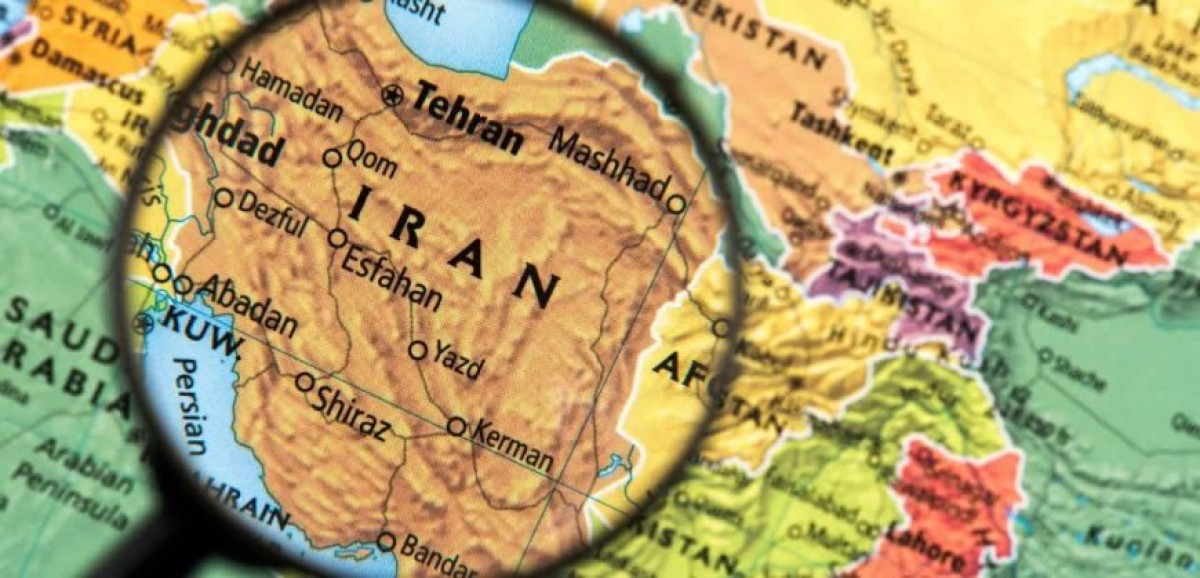 220
220
Iran's Regional Policy: A Quest for Stability and Security in West Asia
Iran's Regional Policy: A Quest for Stability and Security in West Asia
Over the past decade, the Islamic Republic of Iran's regional policy has emerged as a significant force of stability in West Asia’s turbulent dynamics. Throughout this period, Tehran’s role in ensuring security has become unmistakably apparent to the countries in the region. Tehran, with its weighty political influence and considerable capabilities, has earned the reputation of a reliable ally. Consequently, countries within the volatile region have begun to place their full trust in Iran's policies.
By: H. Zaïm-Bashi
Iraq’s Kurdistan region, however, has witnessed a different narrative. Since 1961, it has become a breeding ground for Mossad espionage activities, with Kurdish leaders forging extensive connections with the Israeli regime and terrorist groups taking root in the northern mountainous regions of Iraq. Their nefarious activities have disrupted the security and peace of border areas, causing immense hardship to the civilians residing in these regions.
In light of these challenges, on March 19, 2023, Iran and Iraq signed a joint security cooperation agreement in Baghdad. The ceremony, attended by Iraqi Prime Minister Mohammad Shia’ al-Sudani, witnessed the participation of Ali Shamkhani, Iran’s former secretary of the supreme national security council, and Qasim al-Aarji, the Iraqi national security adviser. During this momentous occasion, al-Aarji assured Shamkhani and the other dignitaries that Baghdad would exert every effort to fully implement the agreement. Moreover, he emphatically declared that Iraq would not permit any group or country to exploit its soil to foment insecurity within Iran.
Crucially, this agreement mandated the Iraqi government to disarm separatist armed terrorist groups within northern Iraq by September 19. It further stipulated the closure of terrorists’ bases, with the relocation of these groups to camps designated by the Iraqi government.
Regrettably, Iran’s expectations regarding the presence of armed terrorist forces near its borders failed to materialize within the stipulated six-month timeframe. Consequently, in October, Dr. Ali Akbar Ahmadian, Iran’s incumbent secretary of the supreme national security council, embarked on a visit to Iraq. During this visit, discussions and exchanges of opinions centered on the full implementation of the security agreement between the two nations took place. Remarkably, after five months, Ahmadian returned to Iraq, armed with comprehensive documentation provided by Tehran, demonstrating that 90% of terrorist and sabotage operations within Iran are orchestrated from the northern regions of Iraq. In light of this revelation, Iran firmly held Iraq’s federal government in Baghdad accountable for expelling all terrorist elements from Iraqi soil.
Drawing from the bitter experience of the Israeli regime's gradual infiltration in Palestine, Tehran has consistently warned the Iraqi government about the Israeli spies, who have been acquiring real estate in northern Iraq while engaging in anti-Iranian plots.
Iran has persistently highlighted these pressing concerns to Iraqi officials in numerous diplomatic exchanges. Iraqi political and security officials, for their part, have reiterated their commitment to good neighborliness and expressed willingness to cooperate in securing the border areas. However, the reasons for the lack of sufficient resolve in Baghdad to address these issues remain unclear. Consequently, Tehran found itself compelled to defend its security and territorial integrity by targeting the positions held by terrorists and Israeli spies.
It is important to emphasize that the full implementation of this agreement is not only in the interest of Iran but also crucial for the security of Iraq and the broader Middle East region. Clearing the borders of Iran and Iraq from the scourge of terrorist groups yields several tangible benefits; most notably, it ensures stable security along the commercial route between the two nations. According to observers, Iran and Iraq must adopt a joint strategy aimed at uprooting insecurity sources. The withdrawal of American occupation forces, alongside the dismantling of Kurdish terrorist groups, will pave the way for peace and foster political, economic, and social development in both countries.
However, if the complete implementation of this security agreement fails to materialize, Iran reserves the right to take appropriate actions deemed necessary to ensure the security and protection of its borders. Should Baghdad, for any reason, prove incapable of implementing provisions of the agreement, the Islamic Republic of Iran will be compelled to deliver a new decisive response against these groups.
Grounded in the principle of legitimate defense, Iran possesses the rightful authority to respond decisively, inflicting a crushing blow on terrorist groups. The Islamic Republic of Iran, as a sovereign nation, is duty-bound to safeguard its territorial integrity, protect the rights of its citizens, and ensure the security of its borders. Undoubtedly, targeting the depth of terror camps becomes imperative to prevent the infiltration of terrorists into Iran's borders.
 220
220
Comment
Post a comment for this article